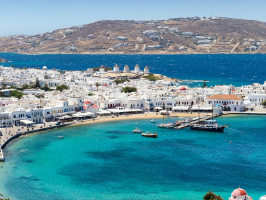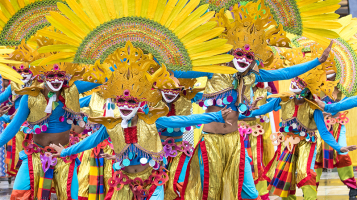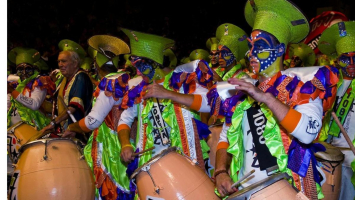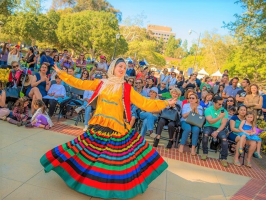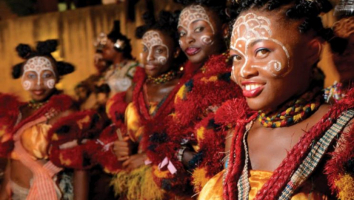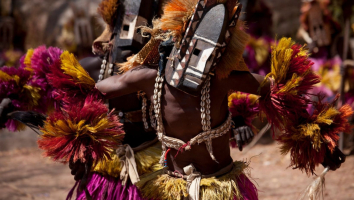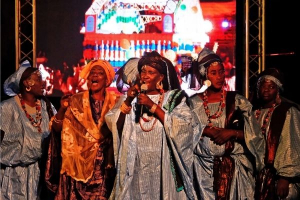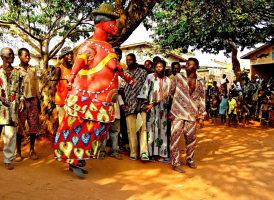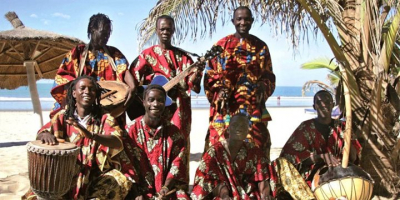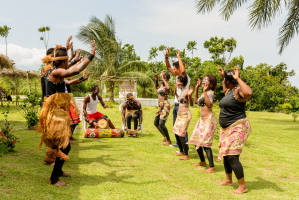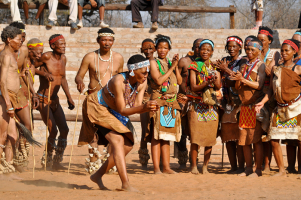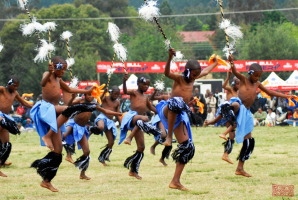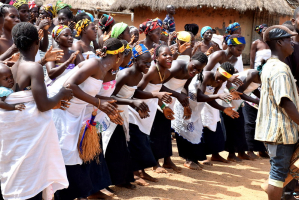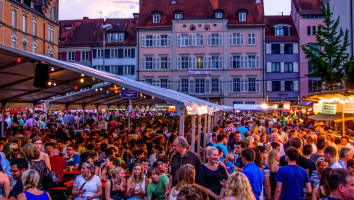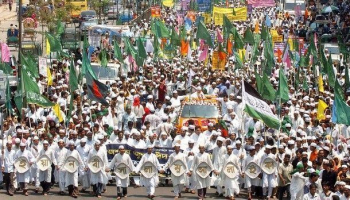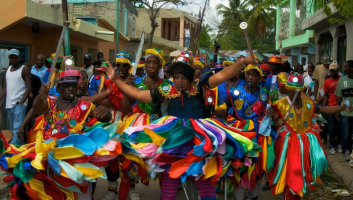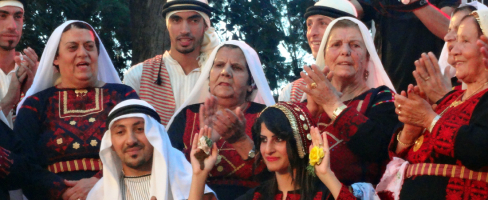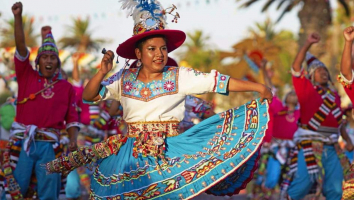Top 8 Most Famous Festivals in Cape Verde
The festivals and traditions of Cape Verde are diverse, vivid, and a reflection of the country's colorful history. They trace their ancestors back to Africa, ... read more...through colonial domination and the Disporia, to independence and the new democratic Republic of Cape Verde's promise. Let’s discover the most famous festivals in Cape Verde with Toplist now!
-
Carnival is Cape Verde's most well-known event, which takes place on most of the islands in February, close to Ash Wednesday. Carnival, which is influenced by Brazilian carnivals and infused with Portuguese flavors from their shared past. The Cape Verdeans and tourists alike enjoy the street parades.The streets are packed with costumed revelers, and the atmosphere is electric.
As you watch the colorful float processions and marvel at the spectacular costumes, feel the beat of the music. The atmosphere is also competitive, as local districts strive for the judges' attention in order to be proclaimed the best street float winner. Mindelo Carnival on the Island of Sao Vicente is by far the largest, with tens of thousands of people attending the celebrations. It has a strong Brazilian flavor, spontaneous street parties, and an exhilarating atmosphere.
Date: Shrove Tuesday
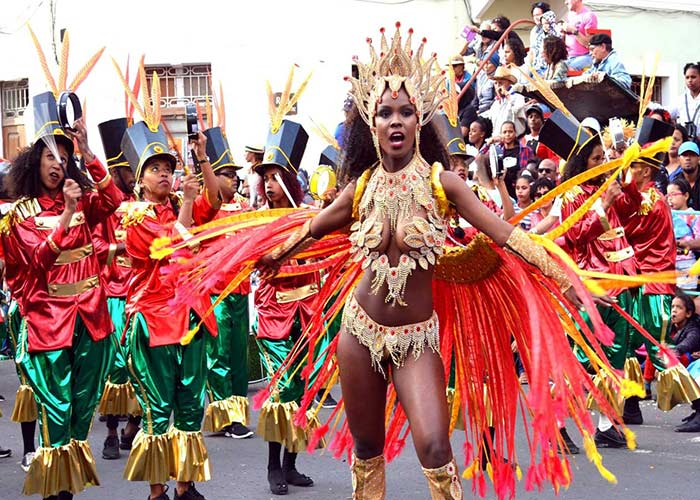
Source: The best carnival in the world 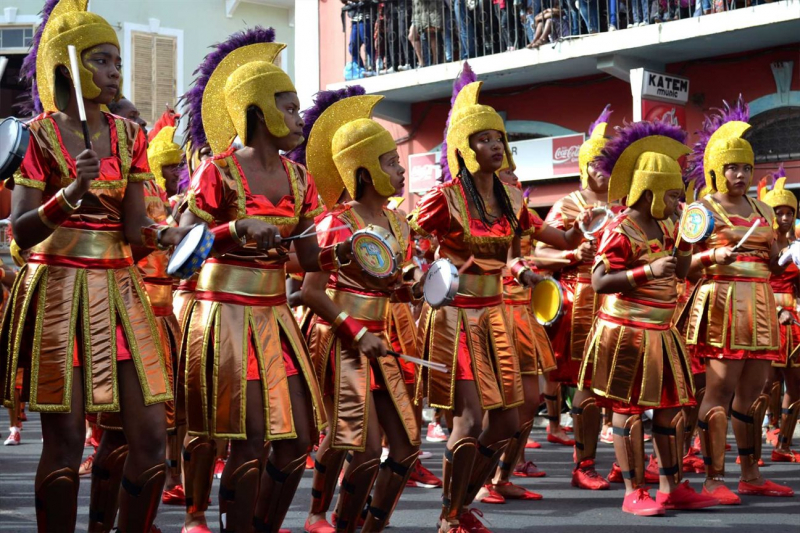
Source: Cape Verde Experience -
Every year on January 13th, the Republic of Cape Verde observes Democracy Day as a national holiday. This holiday honors the first democratic elections in this African island nation, which took place on this day in 1991. This is one of the most famous festivals in Cape Verde.
Cape Verde is now one of Africa's most democratic countries, ranking 26th in the world Democracy Index. It wasn't always like this. Cape Verde obtained independence in July 1975, following the 1974 revolution in Portugal. The African Party for Cape Verde's Independence (PAICV) came to power and formed a one-party state. It wasn't until 1990 that the PAICV discussed constitutional amendments and the formation of a genuine opposition political party, the Movement for Democracy, in response to a growing call for democracy (MPD).
On September 28th, 1990, the one-party state was abolished, and the first multi-party elections were held on January 13th, 1991. The MPD gained the most seats in the elections, while António Mascarenhas Monteiro, the MPD's presidential candidate, defeated the PAICV's nominee.
Date: January 13th
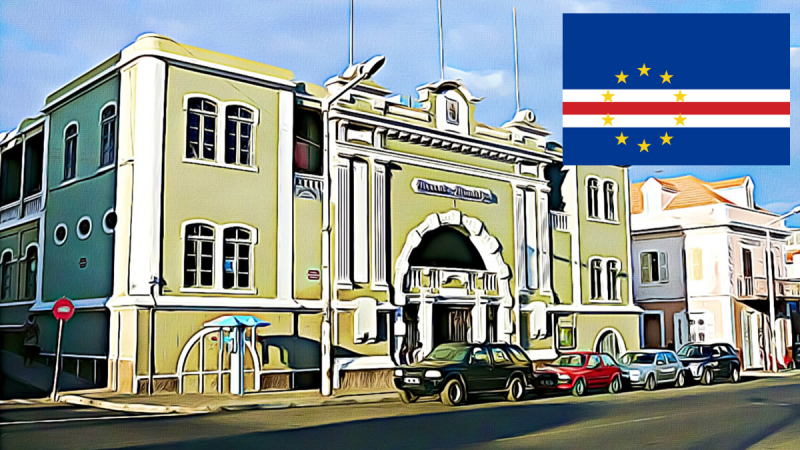
Source: ExcelNotes 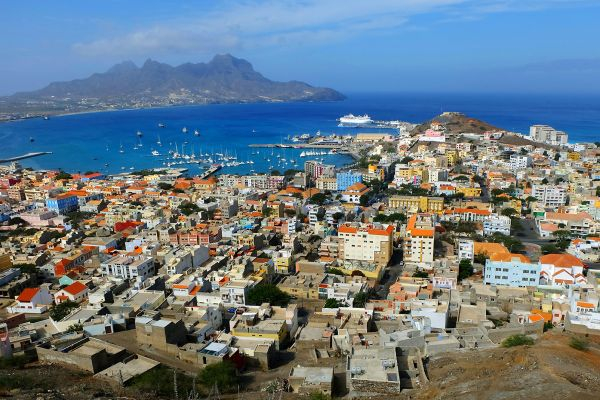
Source: Easyvoyage UK -
On January 20th, Cape Verde celebrates Heroes Day, which is a national holiday. It remembers Amlcar Cabral's assassination in 1973, when he was a hero for battling western colonialism and exploitation.
In 1924, Amlcar Lopes Cabral was born in Portuguese Guinea. He was educated in Cape Verde and Lisbon, where he developed his political beliefs on colonialism and rose to prominence in the West African independence struggle. Cabral founded the African Party for Guinea and Cape Verde Independence in 1956. (PAIGC). Initially, the PAIGC advocated for independence via peaceful methods. The PAIGC began the struggle of independence in 1963, after becoming disillusioned with Portugal's use of force to crush local demonstrations.
The 20th of January is their National Heroes Day since it comes on the anniversary of Cabral's death, and while the day is meant to honor all national heroes, choosing this date is an appropriate approach to honor the life of such a significant figure.
Date: January 20th
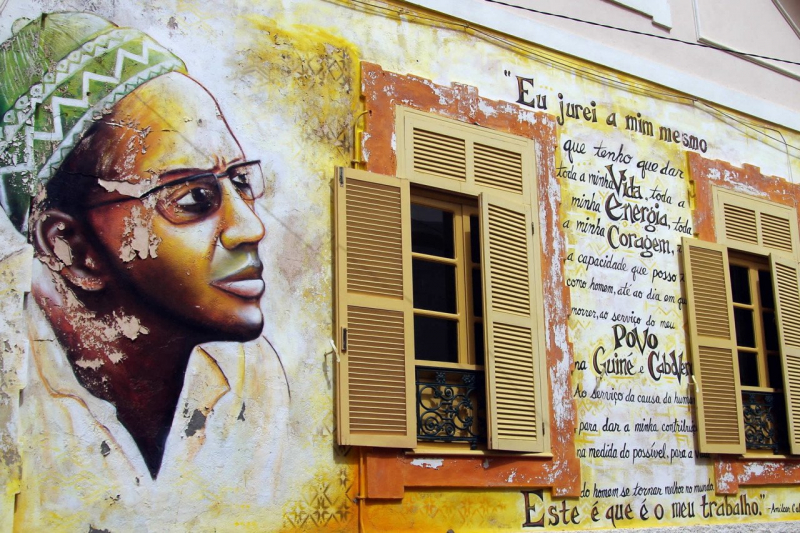
Source: Office Holidays 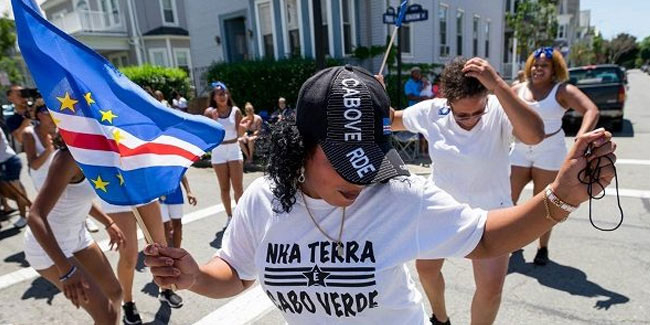
Source: webplus.info -
Independence Day - one of the most famous festivals in Cape Verde is a public holiday in Cape Verde, which is celebrated every year on July 5th. This is Cape Verde's National Day, which honors the country's 1975 independence from Portugal.
On Independence Day, the nationalist movement in Cape Verde was intertwined with that of Portuguese Guinea, the other Portuguese territory in the region. Amlcar Cabral, a Guinean, founded the African Party for Guinea and Cape Verde Independence in 1956. (PAIGC).
The PAIGC's goals were to better Cape Verde's and Portuguese Guinea's economic, social, and political situations, and it served as the foundation for the two countries' independence movements. With Portuguese Guinea proclaiming independence in 1973, these aspirations erupted into a war on the African continent.
Date: July 5th
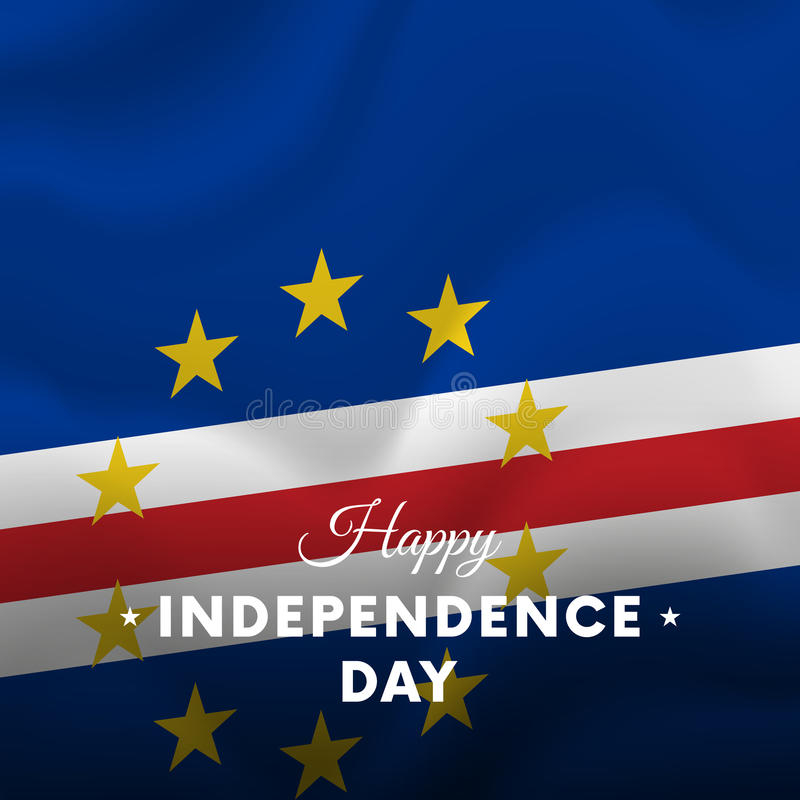
Source: dreamstime.com Source: Boston City TV -
The Baia das Gatas musical festival, which takes place on the island of Sao Vicente, began in 1984 as a way for a group of friends to get together and share musical ideas, as well as to foster unity and peace throughout Cape Verde. The festival currently includes not just Cape Verdean musicians, but also worldwide artists, and attracts tens of thousands of visitors from all over the world.
The Baia das Gatas music event takes place on the beach during a long weekend in August, close to the full moon. It has grown into one of West Africa's major open-air music events, as well as a celebration of Cape Verean culture. There are a plethora of food vendors where you can sample Catchupa, Fagalada, and, of course, plenty of beer and Grogue. The night soon devolves into a massive party and disco.
This music festival serves as a model for others in Sal and Santiago, such as the Gamboa Music Festival, which takes place in May.
Date: August
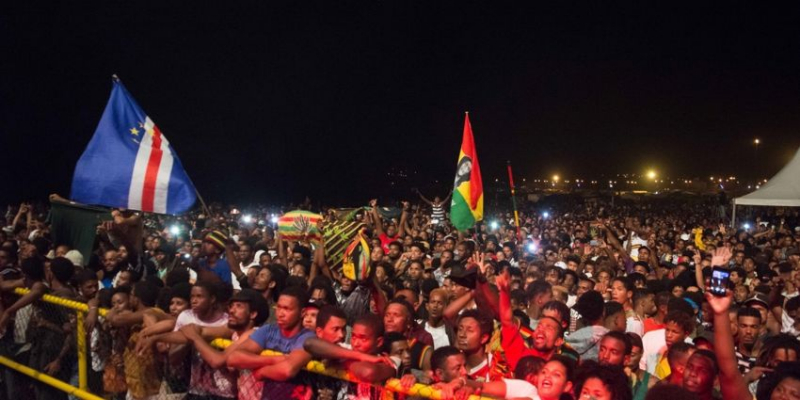
Source: 7toucans Source: RTC - Rádio Televisão Cabo-verdiana -
Tabanka is distinct from other types of music in that it has an allegro, a binary compass, and is traditionally melodic only.
Its format is song-response in its traditional form, with a performer chanting a phrase that is repeated in unison by other singers. Drums and other instruments, such as whistlers and conches, are used to create a rhythm. Tabancas of Várzea, Achada Grande, Achada de Santo António (three areas of Praia) and Ch de Tanque in Santa Catarina Tabanka has been re-composed in numerous forms by contemporary artists and performers.According to history, the Tabanka Associations were viewed as a political symbol of resistance to colonialism and the birth of a new Cape Verde free of colonial domination. Tabanka provides an intriguing insight into Cape Verde's national identity. On Santiago Island, there is a Tabanka museum.
Date: May 3rd

Source: Rainforest World Music Festival Source: Tabankamusic -
The Sal Music Festival, which takes place over a weekend in September, has grown to be one of the most famous festivals in Cape Verde that attracts both local and international performers. The music performed is a fantastic blend of many different styles and influences. People from all around Cape Verde, as well as visitors, gather at Santa Maria beach for the celebration, and many camp out on the beach for the duration. When the sun sets, bonfires are lit, and the party continues well into the night.
The Sal Music Festival attracts tens of thousands of visitors to Cape Verde. Locals travel from the islands to Santa Maria and set up camp on the beach where the celebration is held. Food and drinks are also featured as part of a West African tradition that has grown in popularity.
The celebration continues into the evening, with guests enjoying soul music around a bonfire.
Date: September
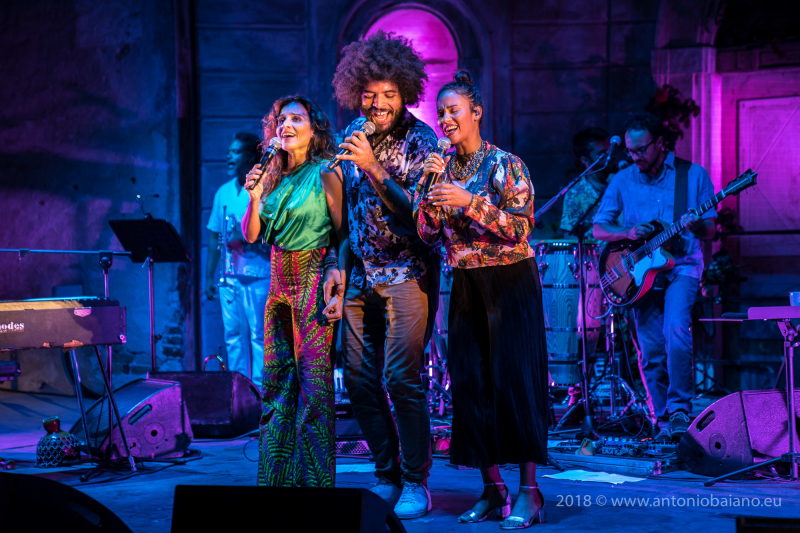
Source: voyagesafriq 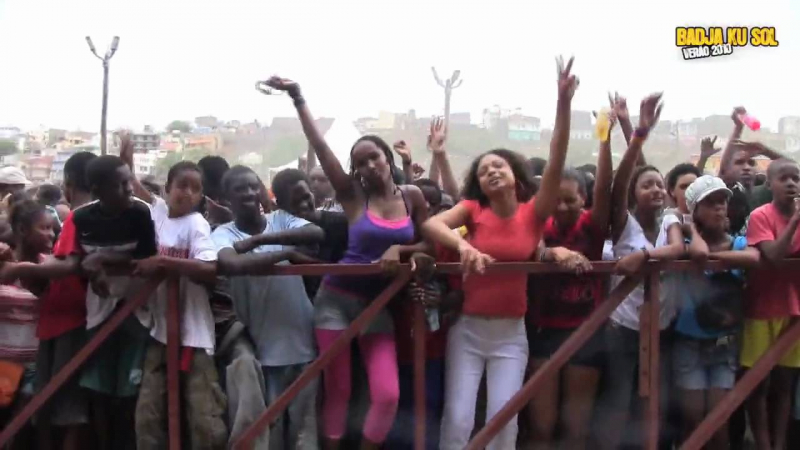
Source: DestiMap -
Every November 1st, Cape Verde celebrates All Saints' Day. On this day, Christians commemorate both well-known and lesser-known saints from previous eras. Millions of Christians around the world mark All Saints' Day, which is a key event in the traditional Christian calendar.
With nearly three-quarters of the population practicing Roman Catholicism and a long history of Portuguese colonization and influence, it's no surprise that All Saints' Day is celebrated as a national holiday in Cape Verde.
Cape Verdeans commemorate it by attending a special mass, visiting and decorating loved ones' graves, and possibly hosting a family reunion, much like they do in Portugal or anywhere else in the globe.Those in Cape Verde, on the other hand, incorporate some African traditions. On All Saints' Day, processions with drums, masks, and costumes, as well as local dances, are common. This is one of the primary events on the island of Santiago, but comparable events can be found all around Cape Verde.
Date: November 1st
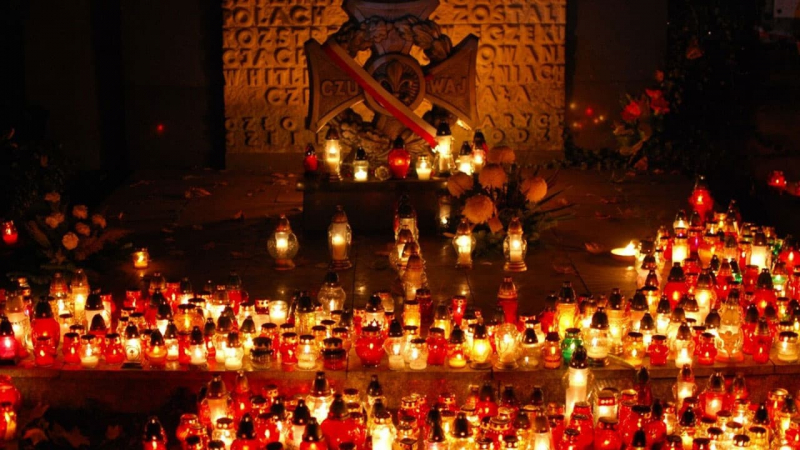
Source: AstroSage.com 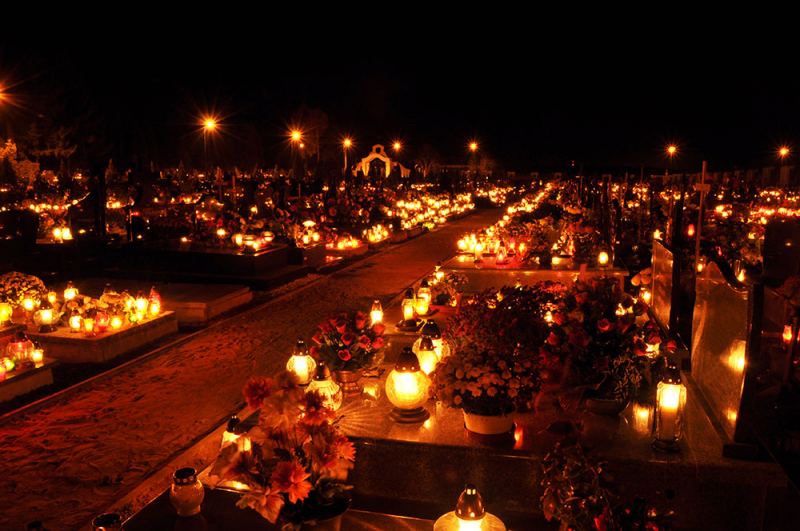
Source: HolidaySmart










